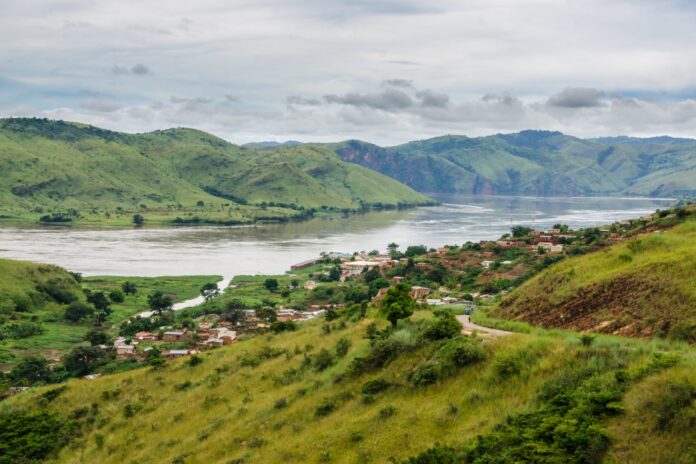The two say their joint venture will deliver services to 19m more people in the Democratic Republic of Congo and that it is the first of its kind in Africa
Orange and Vodacom are forming a rural towerco partnership in Africa which they say is the first of its kind. Through this partnership, the operators will build, own and operate solar-powered mobile base stations in underserved areas of the Democratic Republic of Congo (DRC) in central Africa. The setting up of this joint venture remains subject to the approval of administrative, regulatory, and competition authorities.
The initiative will extend network coverage and enable access to telecommunications and mobile financial services to up to 19 million people in less densely populated rural communities, reinforcing their commitment to bridging the digital divide and driving inclusive growth. The DRC has a mobile internet penetration rate of 32.3%.
By land area the country is the second-largest country in Africa and with a population of around 111 million.
Although deploying and operating networks, particularly in rural areas, is challenging in the DRC, Vodacom and Orange have pledged jointly to construct up to 2,000 new solar-powered base stations over six years, using 2G and 4G technologies. This agreement kicks off with an initial commitment of 1,000 sites after which Orange and Vodacom could scale the project by another 1,000 towers.
A range of services
The combined investment will give an estimated 19 million people access to voice, data and mobile money services. The first base station expected to start operating in 2025; Orange and Vodacom will share active and passive equipment owned by the joint venture as anchor tenants for an initial term of 20 years.
Orange and Vodacom’s scheme to construct new base stations aligns with the country’s vision for the digital economy as outlined in the National Digital Plan Horizon 2025 which was adopted in 2019.
The Plan aims to foster digital transformation across sectors, to improve public services, enhance economic growth and provide access to digital services for all citizens. This initiative emphasises e-citizenship, e-government and e-commerce. It is expected to contribute to job creation, bridge the digital divide, and boost the country’s GDP.
Multi-tenancy possibilities
The joint venture will also offer its passive infrastructure to any mobile operator that is interested wherever it is technically feasible to increase usage and promote a wider range of options for the population.
“With a footprint serving over 210 million customers across Africa, we have the opportunity to significantly contribute to the continent’s socio-economic development by building a digital society and fostering inclusivity for all,” says Shameel Joosub, CEO of Vodacom Group. This aligns with our purpose to connect for a better future, and our partnership with Orange is a crucial step towards providing mobile coverage to people in previously underserved areas in the DRC.”
Jérôme Hénique, CEO, Orange Middle East and Africa added, “Our longstanding presence in Africa, including over 10 years in the DRC, has equipped us with a deep understanding of the market and customer needs.
“Collaborating with Vodacom by sharing both passive and active infrastructure is the most effective approach to fulfilling our commitment to accelerating connectivity access for everyone, including rural areas, while minimizing our environmental footprint.”
Long-term commitment
Orange RDC, a subsidiary of the Orange Group, has been operating in the DRC for nearly 12 years and has more than 15 million subscribers and more than 3,400 sites mobile antenna sites, of which more than 90% are 4G-enabled. It is the only operator in the country to offer fibre to subscribers and has pioneered a number of technologies in the DRC.
Orange RDC says it is committed to digital and social inclusion, with initiatives such as the Orange Digital Center & Clubs in Kinshasa, Lubumbashi, Matadi, and Kananga, which provide free digital training to thousands of young Congolese people.



